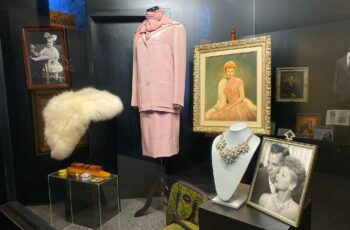I discovered it extremely ironic that they made the show to strengthen their marriage and begin a family though ultimately this is what drove them apart. The thing never in question was the deep-rooted love of theirs for one another. Ball concluded with a definition of love, declaring, “for me, it is planning to devote myself.” And she did only that; as Arnaz struggled throughout the life of his with the feeling that he do not actually was at home in America, Ball don’t left his side. Personally, it was shocking to watch the documentary include Arnaz’s traumatic experience in Cuba, particularly because Arnaz-Luckinbill mentioned he seldom discussed it, other than the unexpected mention of his hometown’s beauty. Arnaz was a refugee, not wanting to leave the home of his, but being forced to for political reasons. Because of this, Arnaz’s heartbreaking fight in his life was that he never really felt at home, and he kept looking for it everywhere, to no avail. “If it had not been for Lucy, I would have stopped to try a very long period ago,” Arnaz recalls.
Arnaz also stood by Ball ‘s side when the House Unamerican Activities Committee reported that Ball was a communist. In fact, she had registered as such years earlier in deference to her grandfather ‘s wishes. She was never involved in the communist party. It was interesting to experience the court trials, press swarming Arnaz and Ball, and Arnaz’s reaction as a protective husband since you find the true sensation of how it will feel to be accused of some thing you did not do. I might really feel the claustrophobic nature that Ball should have experienced once the tapes from the trials were shown, as she was surrounded by hundreds of folks, spitting questions at her. When these statements emerged, Arnaz took control, inviting the press and an audience to just one of their live shows, where he’d the head of the F.B.I. (J. Edgar Hoover) on the phone saying that Lucy was cleared of all costs. To quote Arnaz, “the only thing red about [Lucy] was the hair of her, and also that wasn’t legitimate.”
Despite playing a happily married couple holding a comedy show, there was much drama behind the scenes, and that made me think of how you never really know someone based upon whatever they show publicly. After “I Love Lucy,” they did another season called “The Lucy-Desi Comedy Hour.” That ran for a single season, and also it was apparent both on and off screen which both the series and the marriage was over for good. To watch an episode of “I Love Lucy” and “The Lucy Desi Comedy Hour” back-to-back, it had been painfully clear the two had entirely lost their chemistry. They divorced shortly after.
One of the most intriguing elements that i learned, and that the public doesn’t recognize these days, is the fact that prior to the divorce, Ball and Arnaz bought out RKO Studios and also made it a part of Desilu Productions. I found it a lot more fascinating that after the divorce, Ball bought out Arnaz’s share, turning the first female president associated with a significant studio. Ball is a female inspiration, paving the way for women as business professionals for generations to come. As the years went on, Arnaz carried on to produce Ball ‘s follow-up series and they stayed working partners. Lucie Arnaz-Luckinbill, the daughter of theirs, claimed their attitudes toward one another softened once the divorce was finalized, and they both went on to extended marriages with other people.


